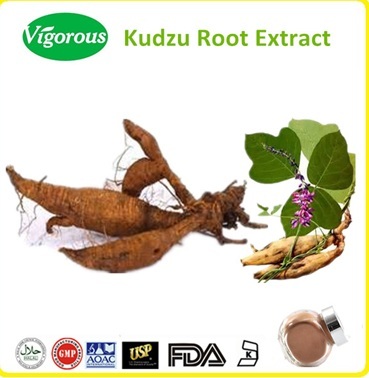- Extract Powder
-
- Fragrant Solomonseal Extract
- Elsholtzia Ciliata Extract
- Wormwood extract
- Red Radish Extract
- Arnica Extract
- Blue Lotus Extract
- Star Anise Extract
- Saxifraga Extract
- Red Bean Extract Powder
- Cistus Creticus Extract
- Luo Han Guo Extract Powder
- Saffron Extract
- Cranberry Extract
- Swertia Bimaculata Extract
- Ligustrum Extract
- White Willow Bark Extract
- Butterbur Extract
- Tongkat Ali Extract
- Grapefruit Extract
- Coix Seed Extract
- Carob Extract
- Lupinus Albus Extract
- Horse Chestnut Extract
- Kava Extract
- Dracocephalum Extract
- Olive Leaf Extract
- Lycoris Radiata Extract
- Schisandra Extract
- Scutellaria Extract Powder
- Semen Coicis Extract
- Sabah Snake Grass Extract Powder
- Phellinus Linteus Extract
- Lycium Extract
- Apple Extract
- Sophora Japonica Extract
- Lungwort Extract
- Acai Berry Extract
- Macleaya Cordata Extract
- instant green tea powder
- melissa officinalis extract
- dandelion extract
- ajuga turkestanica extract
- sesame extract
- rhodiola extract
- filipendula ulmaria extract
- chanterelle mushroom extract
- instant jasmine tea powder
- cistanche extract
- agaricus blazei extract
- agaricus bisporus extract
- agrocybe aegerita extract
- antrodia camphorata extract
- astragalus extract
- auricularia auricula extract
- bilberry extract
- black currant extract
- centella asiatica extract
- chlorella powder
- coprinus comatus extract
- cordyceps Extract
- coriolus versicolor extract
- desmodium extract
- Ecklonia Cava Extract
- epimedium extract
- eucommia extract
- evodia extract
- fenugreek extract
- fisetin extract
- flammulina velutipes extract
- fo-ti extract
- fucoxanthin extract
- ginkgo biloba extract
- ginseng extract
- grape seed extract
- graviola extract
- green coffee bean extract
- green tea l-theanine
- hawthorn extract
- hericium extract
- honeysuckle flower extract
- inonotus obliquus extract
- instant black tea powder
- kacip fatimah extract
- lovage extract
- luo han guo extract
- lutein extract
- lycium extract
- maitake mushroom extract
- mulberry extract
- muskroot extract
- olive leaf extract
- oolong tea extract
- phellinus linteus extract
- pine bark extract
- pomegrante extract
- polyporus umbellatus extract
- poria cocos extract
- pu erh tea extract
- pumpkin seed extract
- pleurotus eryngii extract
Kudzu Root Extract
2015-09-09
What is Kudzu root (Pueraria lobata)?
Pueraria montana is a species of plant in the botanical family Fabaceae. At least three sub-species (alternatively called varieties) are known. It is closely related to other species in the genus Pueraria (P. edulis and P. phaseoloides) and the common name kudzu is used for all of these species and hybrids between them. The morphological differences between them are subtle, they can breed with each other, and it appears that introduced kudzu populations in the United States have ancestry from more than one of the species.
Chemical constituents of Kudzu Root extract
The compositions of kudzu root are various. Chemical analysis of kudzu has revealed that the herb encloses many helpful isoflavones, counting daidzein (an anti-microbial and anti-inflammatory agent), genistein (an anti-leukemic agent) and daidzin (a substance that puts off development of cancer). In addition, kudzu is also a distinct source of the isoflavone called puerarin. The chemical compounds found in kudzu root have the ability to influence neurotransmitters (counting serotonin, glutamate and GABA). Kudzu has also demonstrated its effectiveness in treating migraine as well as cluster headache.
Benefits of taking kudzu root extract supplements
As mentioned in the above mechanism of actions, Kudzu root is regarded as beneficial to Alcohol cessation, Menopause, Metabolic syndrome, blood sugar, cholesterol, lipids, triglycerides,etc.
Kudzu root and Alcoholism
Kudzu might help treat alcohol addiction. TCM practitioners have traditionally given intoxicated people doses of kudzu root tea to help them sober up.
Heavy drinkers who took kudzu extract consumed fewer alcoholic drinks than the people who took a placebo. Those who took the kudzu also took more sips to finish their drinks. This indicates that kudzu supplements might help treat alcoholism, but more clinical studies need to verify these claims.
Kudzu root and Menopausal Symptoms
Isoflavones found in kudzu are similar to those in soy. The soy isoflavones have a known estrogenic effect, or produce results similar to the estrogen hormone, but research on the kudzu isoflavones have had mixed results. Human subjects who consume kudzu extract report a reduction in the number of hot flashes they suffer each day. The Memorial Sloan-Kettering Cancer Center notes that consuming kudzu might alleviate some menopausal symptoms, particularly hot flashes and night sweats. Consult your doctor before using kudzu supplements to treat menopausal symptoms.
Kudzu root and Cardiovascular Health
Kudzu root may also help to promote cardiovascular system health in a variety of ways. The isoflavones found in kudzu reduce high cholesterol levels, lower high blood pressure and help to prevent the blood from becoming sticky, clumping together and forming blood clots. In addition, kudzu extracts help to dilate blood vessels and increase oxygen and blood flow to the heart and brain, and kudzu is sometimes used to treat angina.


